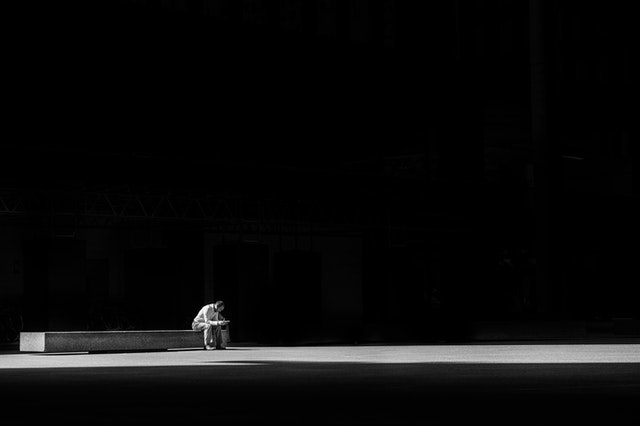- Home
- Articles and blog posts
- 5 principles of psychological wellbeing in human development
Articles and blog posts
5 principles of psychological wellbeing in human development

By Huayi Huang
Cite as:
Huang, Huayi (August 2021). 5 principles of psychological wellbeing in human development. https://drkriukow.com/5-principles-of-psychological-wellbeing-in-human-development/
What helps us grow into the changes we see around us?
In a recent Quora post, somebody asked about some principles of human development. I’d like to share five principles here today in reply, from scientific theory I’ve been involved with in my recent work. Theorising of course plays a central role in qualitative research (as it does in many other areas of knowledge growth), but the ideas below have far wider implications for our lives.
The first 3 principles come from Self Determination Theory, a theory of the psychology of human motivation, wellbeing, and those forces driving change in our behaviour. The second 2 principles come from Montessori Theory, a theory of how we develop, learn, and come to possess an individual and collective spirit for facing our challenges. Both theories are currently alive and well, and widely applied to explain what we observe across both formative and later developmental settings of the human being.
Both theories agree on the existence of innate human needs, as we live and co-develop alongside the changes we see in our worlds. From Self Determination Theory we have proposals identifying 3 basic human tendencies, needing to be satisfied for us to psychologically flourish and grow. From Montessori theory, we learn about two foundations keys: in becoming a human being who continues to mentally thrive, in spite of the bumps, bruises or disappointments making an appearance in the long road of life.

“From Self Determination Theory we have proposals identifying 3 basic human tendencies, needing to be satisfied for us to psychologically flourish and grow. From Montessori theory, we learn about two foundations keys: in becoming a human being who continues to mentally thrive, in spite of the bumps, bruises or disappointments making an appearance in the long road of life.”
From Self Determination Theory we learn that reasons for what we do often relate to the frustration or satisfaction of our basic psychological needs, in the environments we move in. The first of these 3 basic needs is competence (P1). In the sense of whether our personal or professional environments, for example, are supportive or debilitating of our belief in basically ‘doing well’ – in the life activities we hold most dear.
Autonomy (P2) in the context of self-determination is about the sense of personal control and choice in those activities we engage in. Slavery, for example, has been widely regarded as a setting in which the human being’s will and opportunity to choose is greatly reduced and curtailed. In contrast, a key ideal of much of Western culture – to (autonomously) choose those thoughts and actions we engage in for ourselves.
But to be thinking and doing well for ourselves is not sufficient, in cultivating a deeper sense of personal psychological wellbeing. For example, the social isolation witnessed during the recent COVID pandemic may have challenged some of us more than others. Self Determination Theory proposes that one of possible reasons for this challenge is our innate psychological need to connect and relate (P3) to other human beings. The socially excluded individual is unlikely to be happy or psychologically well. As citizens during these difficult times of uncertainty, social unrest, and difficulty, perhaps all becoming a little more responsible in extending a hand of inclusion to others where we can.
Through study of the psychology of the early years in connection with her Montessori pedagogy, Dr Silvana Montanaro discovered the importance of both developing a basic faith in ourselves (P4) and a basic faith in our environments (P5).
A basic faith in ourselves, to figure things out – is a recurring theme in much of the self help literature. For Dr Montanaro (a senior Montessori trainer and medical practitioner who extensively studied the human being of 0-3), this basic trust in both ourselves and the world around us is a key aspect in the development of our first personalities; hopefully role modelled as part of the self-care being practiced around us in our early years.
Complementing the sense of thinking and doing well for ourselves as well as others, then, a basic confidence in ourselves to succeed in figuring out our world, and in being rewarded for our perseverance in this striving.

“the recent COVID pandemic may have challenged some of us more than others. Self Determination Theory proposes that one of possible reasons for this challenge is our innate psychological need to connect and relate to other human beings.”
What does it mean for me?
These principles from Montessori theory identify 2 keystones (trusting in our environment as well as ourselves) to unlocking a healthy outlook and foundation – in tacking our challenges. But the 3 principles from Self Determination Theory serve to guide us, in searching for natural and human environments that enhance our sense of competence, autonomy, and belonging with others.
Losing faith in ourselves, for example, is often accompanied by doubts arising about our competence – in the basic and more elaborate activities key to our daily life. Losing trust in the things, others, and opportunities in our environments, in turn, can lead to a strong sense of isolation and disengagement, from the wealth of experiences, stories, challenges, and successes from our shared human story and history.
These 5 principles of human development have been shown to be important, in helping us choose environments that encourage rather than suppress our natural tendencies towards growth in how we think about the world. To adapt to, seek, and thrive from a basic faith in ourselves to become a part of those trustworthy natural and human environments.
Your trust in these principles of human development might serve as a guiding light and motivation, in how you relate to the stories of others in the present. Reinvigorating our best selves, in tackling those difficult personal or professional relationships from the past. Renewing a hope that whilst the world we see around us may be broken, it may still be changed for the better.
- I would like to acknowledge my wife Yafeng for helpful discussions for this piece
